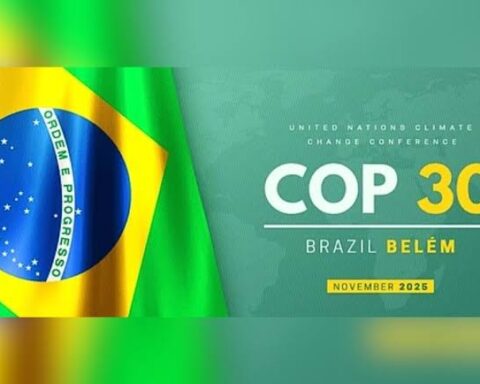Azerbaijan has defended its position as yet another oil and gas producing nation to host the world’s most important climate summit, with the incoming COP29 president saying the Caucasus country was vulnerable to climate change.
In his first international interview since being appointed, Mukhtar Babayev told the Financial Times that Azerbaijan was suffering from the effects of global warming with water shortages and land degradation.
“Green growth is a priority for Azerbaijan for the decades ahead,” the ecology and natural resources minister said from his office in Baku, and that the country was seeking investment.
Last year, the United Arab Emirates, one of the world’s largest oil and gas producers, faced fierce criticism ahead of COP28 in Dubai, in particular over the decision to select the Abu Dhabi National Oil Company chief to preside over the UN climate summit.
While Azerbaijan is not one of the world’s largest producers of fossil fuels, the world’s first oilfield was drilled in the country in 1846 and fossil fuels remain important revenue sources.
Oil and natural gas bring in about 90 per cent of Azerbaijan’s export revenues and finance about 60 per cent of the government budget, according to International Energy Agency figures.
Babayev, who spent more than two decades at the State Oil Company of the Azerbaijan Republic, said Azerbaijan was an important supplier of gas for its neighbours, including the EU.
The EU agreed to double Azeri gas imports by 2027 after Russia’s war on Ukraine strangled its supplies.
“In [the] nearest years, we will continue to deliver the gas to our customers. But at the same time, the main agenda for the country is to increase green energy production and to maximise invest[ment] to this area,” he said.
Babayev added that COP29, which is due to take place in Baku in November, would prove a good opportunity to “demonstrate how the country turned the economy to the green direction”.
Azerbaijan has signed several agreements in recent years for the development of wind and solar projects in the country, including with Masdar, the UAE’s renewable energy company.
Last year, Azerbaijan agreed with Georgia, Hungary and Romania to develop renewable energy projects and export the power using a subsea cable under the Black Sea.
But Azerbaijan’s country commitments to the UN to cut green house emissions, known as national defined contributions, are weaker than many countries around the world.
Its target for a 40 per cent reduction in greenhouse gas emissions by 2050, compared to 1990 levels, is conditional on international support. The UN has urged countries to aim to achieve “net zero” emissions by 2050.
Babayev said Azerbaijan was currently weighing whether to “upgrade” its emissions cuts.
The country, which borders the Caspian Sea, Russia, Georgia, Armenia, Turkey and Iran, was only confirmed as host of COP29 in December, after the agreement of Armenia as part of the resolution of conflict, and with the backing of Russia as part of eastern Europe’s pick in the UN rotation.
Adding to concerns held by climate negotiators about Baku’s human rights record, the appointment of an all-male 24 member organising committee in January was met with outcry, and a group of 12 women were later added.
Babayev, said his own team for COP29 included three men and three women, and that Baku would host “the COP of inclusivity”.
We guarantee that Azerbaijan would provide all conditions for all participants to come to [Baku],” he added.
While Babayev expected to outline his key focuses for the summit during the summer, he said climate finance would be one of the priorities.
“In Baku we will have the chance to talk not only about the main agenda, not only climate finance, but all other issues related to climate change — water, land degradation, food security, agriculture and others.








